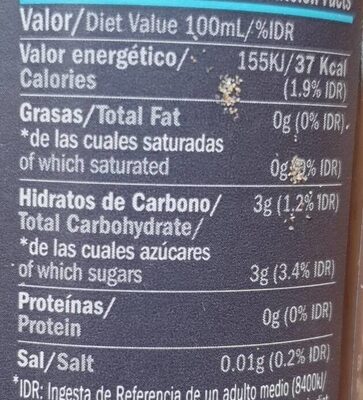Maeloc sidra seca
Aquesta pàgina del producte no està completa. Podeu ajudar a completar-la editant-la i afegint-hi més dades a partir de les fotos ja disponibles, o fent-ne més amb l'aplicació de androide o iPhone / iPad. Gràcies!
×
Codi de barres: 8437011862426 (EAN / EAN-13)
Marques: Maeloc
Categories: Begudes, Begudes alcohòliques, en:Ciders
Enllaç a la pàgina del producte en el lloc oficial del productor: https://maelocway.com/fichas-en-pdf/Fich...
Països on es va vendre: Espanya
Matching with your preferences
Entorn
Petjada de carboni
Empaquetament
Transport
Report a problem
Fonts de dades
Producte afegit per kiliweb
Última modificació de la pàgina del producte per kiliweb.
La pàgina del producte, també editada per buleelula, dotsuke, thaialagata, yuka.Wi8wZkdxa0IvdGhYc1AwRzRTLzYrTlZrL3IyVVpqTzZLdHBMSVE9PQ, yuka.sY2b0xO6T85zoF3NwEKvlndgTv3voWrGMBjQv0O2_vjSf5XTUNRUv7GgYqo.
Si les dades són incorrectes o incompletes, pot completar o corregir editant aquesta pàgina.






